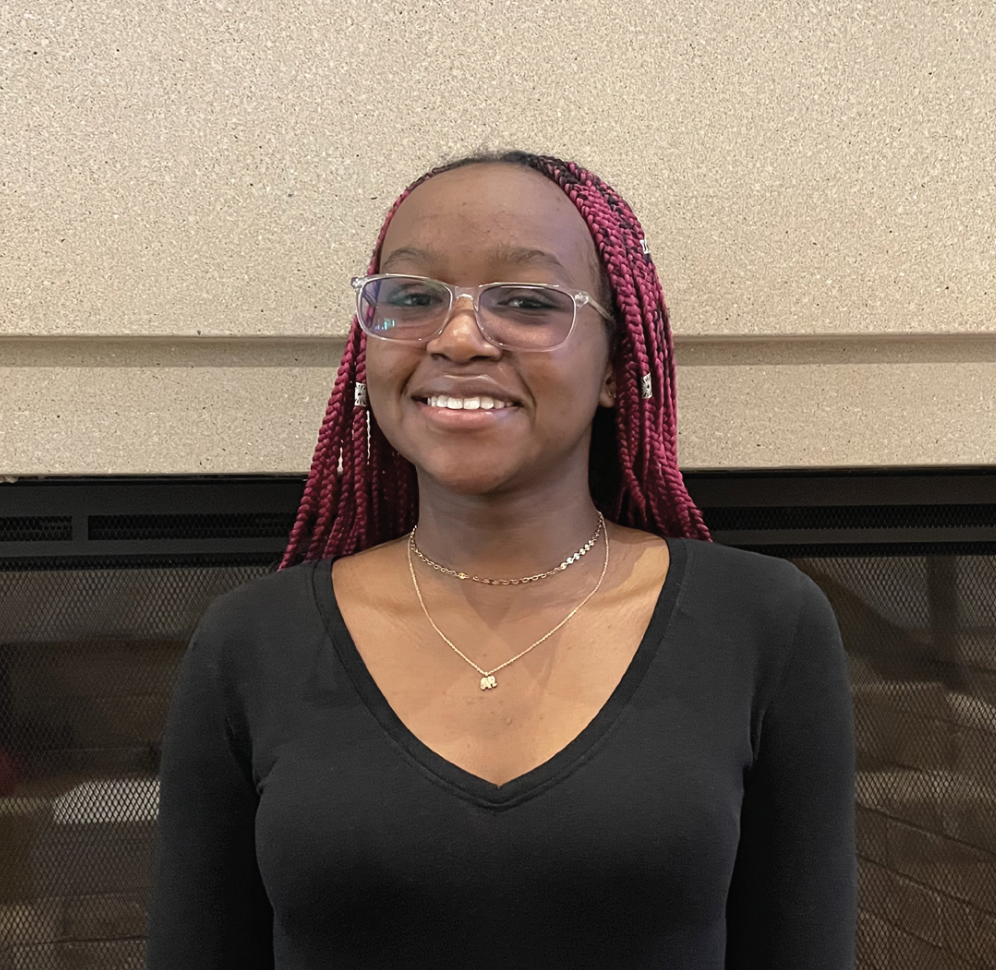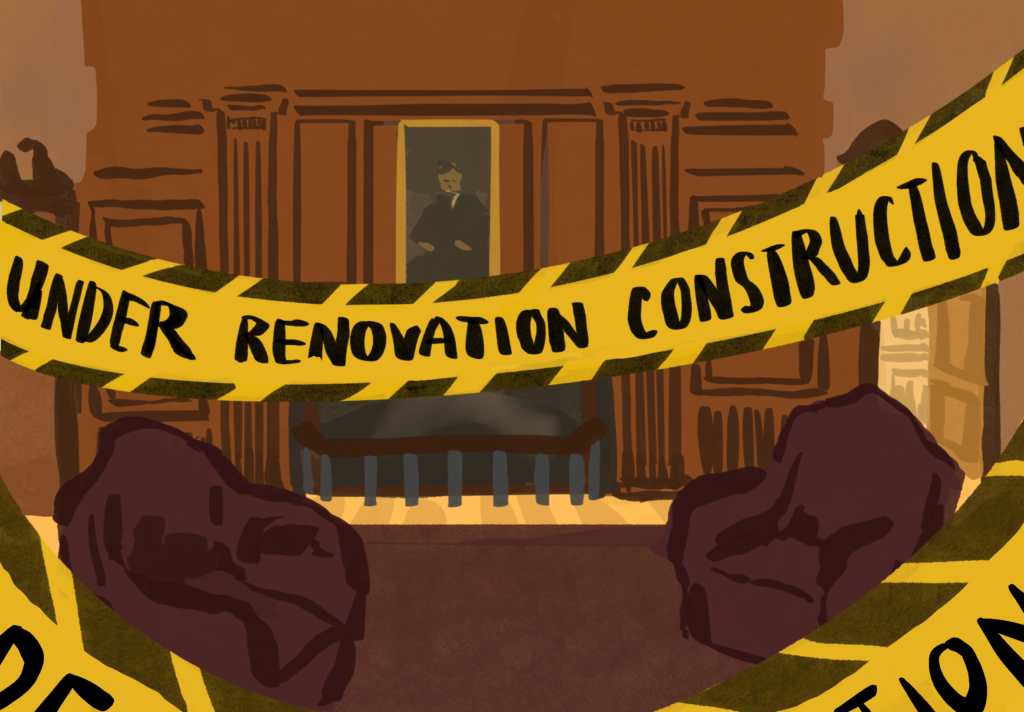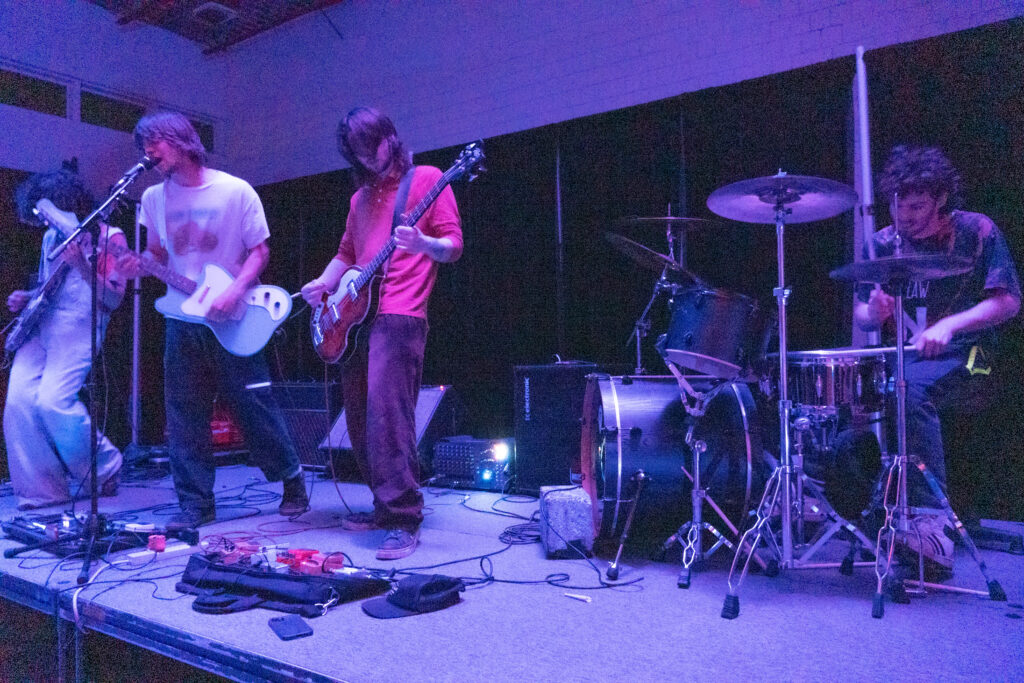
On April 5, four finalists gathered to present their Goodyear Presentations in the Getz Auditorium. This year, the winner was Delcy Asienga ’24, whose speech was centered on the effects of tribalism in Kenya.
The Goodyear Presentation took its name from Mr. Zachary Goodyear, a former faculty member who taught history, political science, and public speaking. After approaching the HPRSS department with an initiative to create an annual speech competition for fourth-form World History students, former English teacher Mr. Trevor Peard decided to commemorate Mr. Goodyear’s dedication to public speaking and history at Choate by naming his newfound competition “Goodyear.”
In the annual competition, fourth-form students across all sections of World History classes have been tasked with researching and creating a presentation consisting of both a thesis-driven speech and visual aid on a preferred topic related to the material covered in the winter term. The experience is an opportunity for students to practice and further develop their public speaking skills by focusing on SPATE techniques introduced by Mr. Goodyear himself — stance, projection, articulation, tone, and eye contact — and dive into the course material through a different lens. This year’s finalists and their speech topics included Asienga, “Tribalism in Kenya,” Yuki Zhang ’24, “Western Mathematics: The Result of Imperialism,” Lauren Kee ’24, “Linguistic Imperialism: Vietnam and India,” and Melody Qian ’24, “The Oriental Woman.”
Asienga’s speech focused on tribalism in her native country, Kenya — a topic she was inspired to pursue after witnessing the effects of tribalism in her daily interactions and within the experiences of her own family. Asienga discussed the effects of tribalism and the political ideologies that surround it. “Since my parents are from different tribes, their marriage was not smiled upon. You can see the effect of tribes on jobs and politics. It’s subtle, but it’s everywhere,” explained Asienga. With her speech, she hoped to educate her audience on the complexity of European influence on tribal Africa, especially stressing the fact that Western media often oversimplifies portrayals of African culture and society. She said, “It is interesting to observe how it has been influenced by the West, and how communities have tried to become more modern and lost touch with how they originally were.” Through conducting research for her speech, Asienga has also obtained a greater understanding of her own culture. “I learned how tribalism shapes a lot of people’s thinking back home. I hope to help them realize the influence of tribalism, even in their day-to-day lives,” she concluded.
Drawing from her interest in STEM fields, Zhang decided to focus her speech on mathematics. Through research on the history of mathematics, Zhang learned the connection between imperialism and mathematics. Zhang said, “I found this article talking about how math was a weapon and also a result of imperialism. That part was really interesting to me, so I decided to do more research on it.” As a mathematician herself, Zhang noticed the effects of imperialism in her studies. “I started to recognize that math wasn’t just European despite all the European names that we see in mathematics today.” With this knowledge, she hopes to share that math isn’t completely computational but also has an interesting cultural and historical aspect. “I feel that because westernized mathematics comes from imperialism, the cultural side of mathematics is taken away. I hope to show that math isn’t just a painful subject just filled with equations, but there is culture and history behind it,” she shared.
Lauren Kee ’24 focused her Goodyear presentation on the impact of colonization on the use of language in India and Vietnam. Growing up in Hong Kong, Kee was very interested in how certain terms in Cantonese were derived from English. As a long-standing linguistics lover, it is when Kee decided to explore the effects of colonization on language in imperial colonies for her Goodyear speech that she came across the British rule in India and French rule in Vietnam. After long hours of in-depth research in the Andrew Mellon Library databases, Kee compiled equal amounts of information for both countries. Presenting in front of her classmates and later in Getz Auditorium, for a larger audience, was a very rewarding aspect of Kee’s experience. Standing behind the podium to deliver her Goodyear speech to an audience of supportive friends and peers was an invaluable learning experience for Kee.
Qian’s speech addressed the effects of New Imperialism and Orientalism on the stereotyping and portrayal of “Oriental” women. She was first introduced to this topic in her World History class with Ms. Cindy Okrah, where the class watched videos discussing the concept of Orientalism. “I’ve always been fascinated by how marginalized groups have been systematically and historically oppressed and the remnants of that in our society,” she shared. Through her extensive research, Qian was astonished to discover the overwhelming extent of Orientalist influence and its deep-rooted origins. She was encouraged to use her speech to educate others on its widespread impact and harmful history. Qian stated, “A topic is often so much more impactful when you’re actually passionate and interested about it. It sort of takes you down this rabbit hole where you start finding sources and then you start digging some more and you’re deep in the databases … and you want to fit all of it into what you want to make available to the public.” Ultimately, Qian’s speech was a huge success, and she was grateful to have garnered so much interest from her fellow students.



